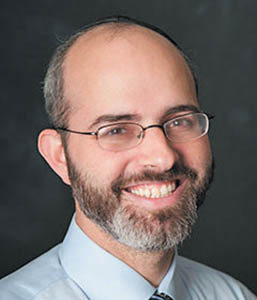
May these words of Torah serve as a merit le’iluy nishmat Menachem Mendel ben Harav Yoel David Balk, a”h.
This week we learned Bava Batra 29. Here are some highlights.
Bava Batra 29: If you do not have a megillah on Purim, should you recite Hallel?
The Gemara in Tractate Megillah (14a) finds the way we celebrate Purim unusual. Typically, holidays are marked with prayers of praise, Hallel. On Chanukah we recite the full Hallel on each day. Why is there no Hallel on Purim? Rav Nachman said that the reason there is no Hallel is because the reading of the megillah serves as the Hallel. Through reading the story, the past comes alive and we feel thankful. Rava said that the miracle of Purim was incomplete. We are still slaves to gentile rulers in exile. As a result, it is not a day for Hallel. Whose opinion is the halachically accepted one? What would the law be if you did not have a megillah with you on Purim? According to Rava you would still not say Hallel. The salvation of Purim was incomplete. It did not create a Hallel obligation. However, according to Rav Nachman there is a Hallel obligation on Purim. The megillah reading is the fulfilment of that obligation. If so, when there is no megillah one should recite Hallel? Shu”t Shivat Tzion (Siman 22) was asked what would be the halacha.
Shivat Tzion points out that in our daf we have an argument between Rava and Rav Nachman. A man had protested and said to his friend, “You are in my home. Leave. What are you doing here?” The friend responded, “I bought the home from you. I have lived here three years and you never protested! I have a chazaka and am entitled to stay.” The protester responded, “For those three years I was living in the home with you. That was not living of chazaka.” Rav Nachman ruled that the resident had to prove that his living there had been the type of living that would establish chazaka. Rava told Rav Nachman that he disagreed. He felt that since the resident had been there for several years, he was the presumed owner. The protester had to prove his claim. Rif points out that Rav Nachman was the teacher of Rava. We have a rule that halacha follows the later authority. Usually, when there is a dispute between Rava and Rav Nachman, the halacha is in accordance with Rava. However, in our discussion, here in Bava Batra, the halacha is like Rav Nachman. Rava and Rav Nachman spoke to each other here. This indicates that this dispute happened when Rava was sitting as a student before his teacher Rav Nachman. When a teacher and student have a dispute before them, halacha follows the view of the teacher. Halacha k’rav bemakom hatalmid.
In Gemara Megillah, was it a dispute between the teacher and student in front of each other, or did Rav Nachman state his opinion, and later, not in his presence, Rava disagreed? If they had argued face to face, the halacha would follow Rav Nachman and one should recite Hallel on Purim if he did not have a megillah. However, if they did not argue with each other, the halacha would be in accordance with Rava, the later authority, and even if one did not have a megillah he should not recite Hallel on Purim. Shivat Tzion pointed out that in Gemara Megillah it does not say “Amar leih Rava, Rava said to him.” It merely states, “Amar Rava, Rava said.” This implies that the dispute did not occur face to face. Rava did not speak to Rav Nachman. He said a law about what Rav Nachman had earlier taught. As a result, we would not say that the teacher wins the dispute. Halacha is in accordance with the later authority. Shivat Tzion ruled that even when you do not have a megillah you should not say Hallel on Purim. He even ruled that one should not say the Hallel without a blessing. We need permission from Jewish law to recite the Hallel, even without a blessing. Since, according to Rava, Purim was an incomplete salvation, Jewish law never permitted reciting the Hallel on it. Teshuva Me’ahava (Chelek Aleph, Siman 45) felt that the halacha is in accordance with the view of Rav Nachman. The Gemara in Megillah stated “Maskif leih Rava, Rava challenged him.” Rava challenged him denotes a conversation while the student Rava sat before Rav Nachman. Like the ruling of Rif in our topic, when the the student sat before the teacher and they argued, the halacha was in accordance with the teacher (Mesivta).
By Rabbi Zev Reichman
Rabbi Zev Reichman teaches Daf Yomi in his shul, East Hill Synagogue.










